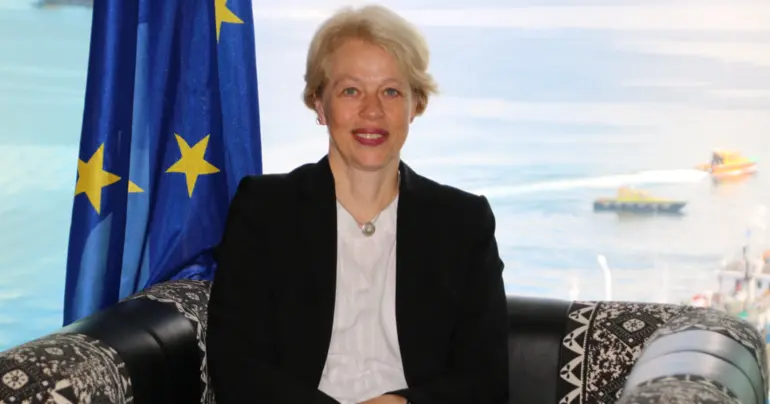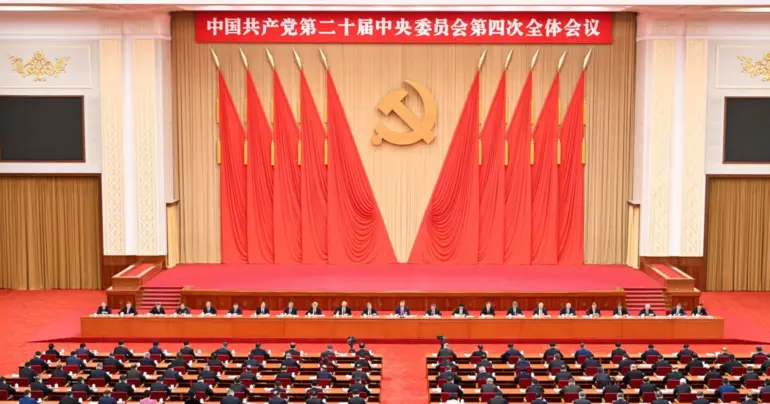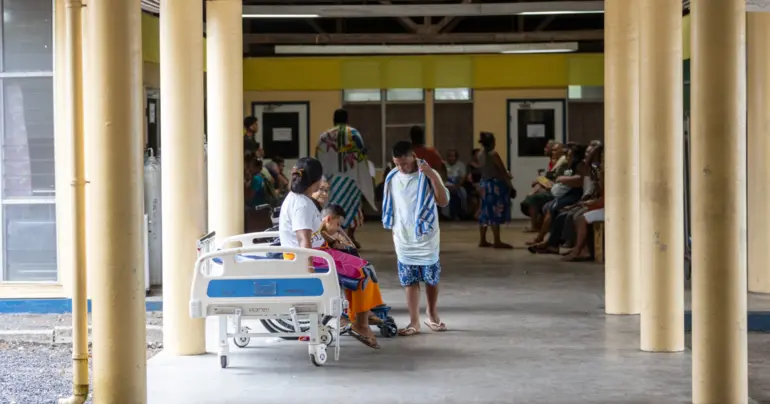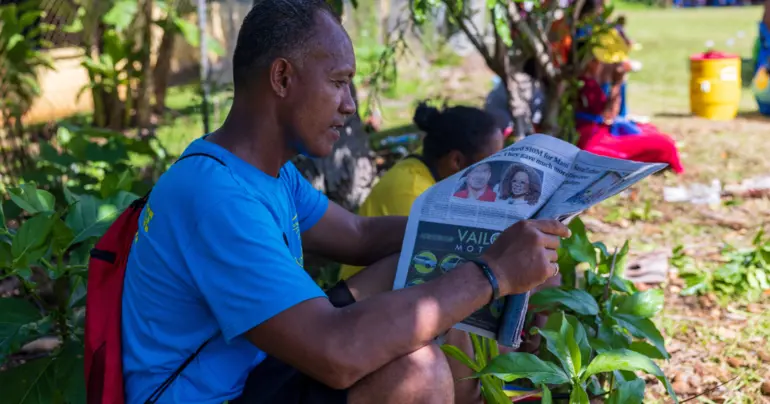A first for Australia, and First Nations Australians
On 7 March, Foreign Minister Penny Wong, the Minister for Indigenous Australians Linda Burney and the Special Envoy for Reconciliation and Implementation of the Uluru Statement from the Heart Patrick Dodson announced the appointment of Justin Mohamed as Australia’s Ambassador for First Nations People.
The Ambassador will head an Office of First Nations Engagement within the Department of Foreign Affairs and Trade. This is a welcome move. It is the first time Australia will have a dedicated level of First Nations representation to inform the way Australia engages with the world, and for the government to deliver on its commitment to embed Indigenous perspectives, experiences, and interests into Australia’s foreign policy.
However, the appointment is a starting point. Much work is required to ensure Australia’s proposed First Nations Foreign Policy amounts to more than window dressing.
Indigenous foreign policies are sometimes framed as a means of using the diplomatic capabilities of Indigenous peoples. In the case of Aboriginal and Torres Strait Islander peoples, sovereign relationships were cultivated for over 60,000 years prior to British settlement as communities negotiated through trade, warfare, and treaty-making. A well-documented example of this is the Makassan trepang fishing and trade with Indigenous communities in northern Australia from at least 1750 to 1907. There are also strong historical connections between the Torres Strait and Papua New Guinea, where previously low sea levels as far back as 8,000 years ago meant that people could easily walk between Cape York and PNG.
According to the Food and Agriculture Organisation of the United Nations, the Indo-Pacific is home to the largest number of Indigenous people with 70 per cent of the 370 million original inhabitants worldwide. Additionally, Indigenous people share a strong connection to their lands and their traditional knowledge and knowledge systems are key to designing a sustainable future. With this in mind, and within the context of rising geopolitical tensions in the Pacific, Indigenous Australians could be an asset that can contribute to and strengthen Australia’s foreign policy.
However, such approaches use the language of indigeneity without embodying it – for example, by purporting to elevate Indigenous voices without engaging in respectful consultation to develop shared policy priorities. This might explain the government’s decision to seek expressions of interest for the Ambassador for First Nations people – the first time an Australian ambassadorial position has been open to a public expression of interest. It might also be why Foreign Minister Penny Wong has said the ambassador will listen to and work in partnership with Indigenous Australians.
Now the ambassador has been appointed, harder questions arise. DFAT is yet to explain how the ambassador will connect with Indigenous Australians, on what foreign policy matters they will be consulted on, and how their input might be used in how Australian foreign policy is developed and implemented. We also do not know how the ambassador might engage with other First Nations peoples in the region, including those outside of government and leadership roles in the Pacific.
In addition to enacting structural reform within DFAT to enhance the way in which Australia acts and interacts with the world through official channels, the ambassador will also need to identify ways to support Indigenous Australians to make their own voices heard. The 22nd Session on the UN Permanent Forum on Indigenous Issues in New York in April will be an early opportunity to set the tone of the ambassador’s engagement with Indigenous Australians (as well as with foreign counterparts).
But DFAT will need to work hard to ensure First Nations people genuinely feel their voices are being heard and they are being supported to participate in the full suite of UN and other international meetings on issues that concern them as Indigenous peoples. This includes the United Nations Framework Convention on Climate Change Conference of the Parties (COP), which Australia hopes to host with the Pacific in 2026, the UN Expert Mechanism on the Rights of Indigenous Peoples, as well as key declarations including the Universal Declaration of Human Rights.
DFAT will also need to identify where it makes sense to use the unique diplomatic capabilities of Indigenous Australians to help achieve Australia’s foreign policy objectives. For example, where it could be beneficial for Australia to include Indigenous Australians on delegations. DFAT will also need to work across government to help grow First Nations’ trade and investment.
As the US Secretary of the Interior Deb Haaland said at the Perth USAsia Centre on 14 February Indigenous voices and practices matter. The promise of a First Nations Foreign Policy could be transformational for Australian diplomacy, particularly in the Pacific, yet the challenging work for DFAT and the newly appointed Ambassador to set out more detail and specificity on Australia’s plans starts now.











